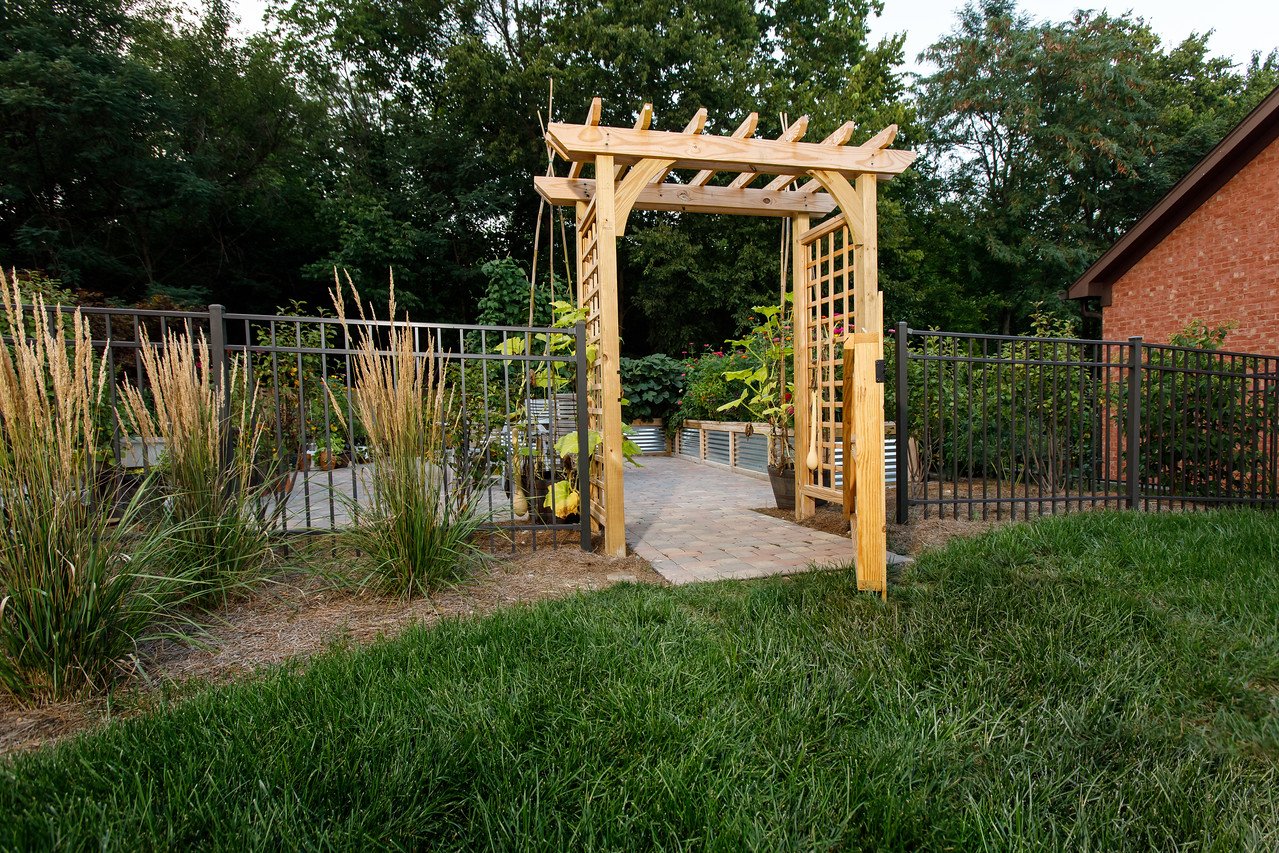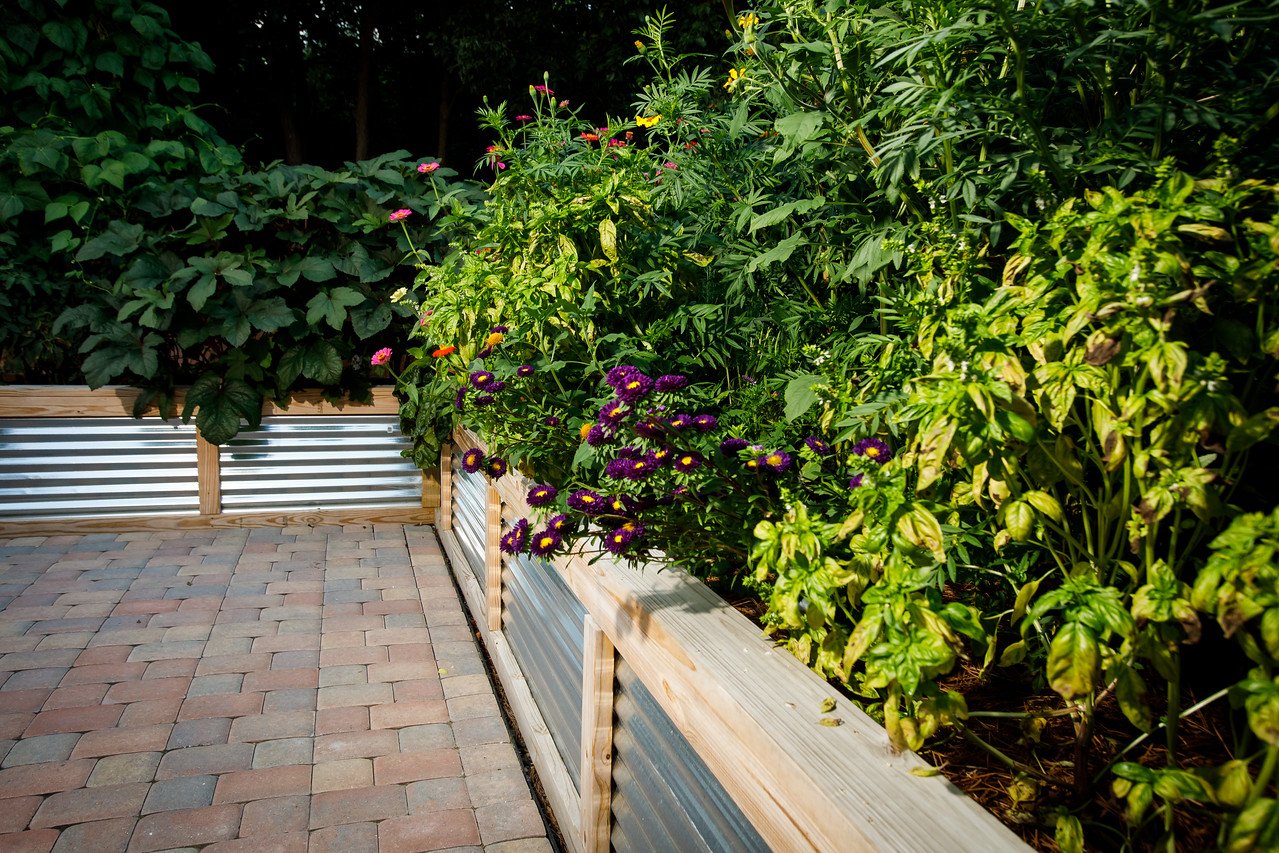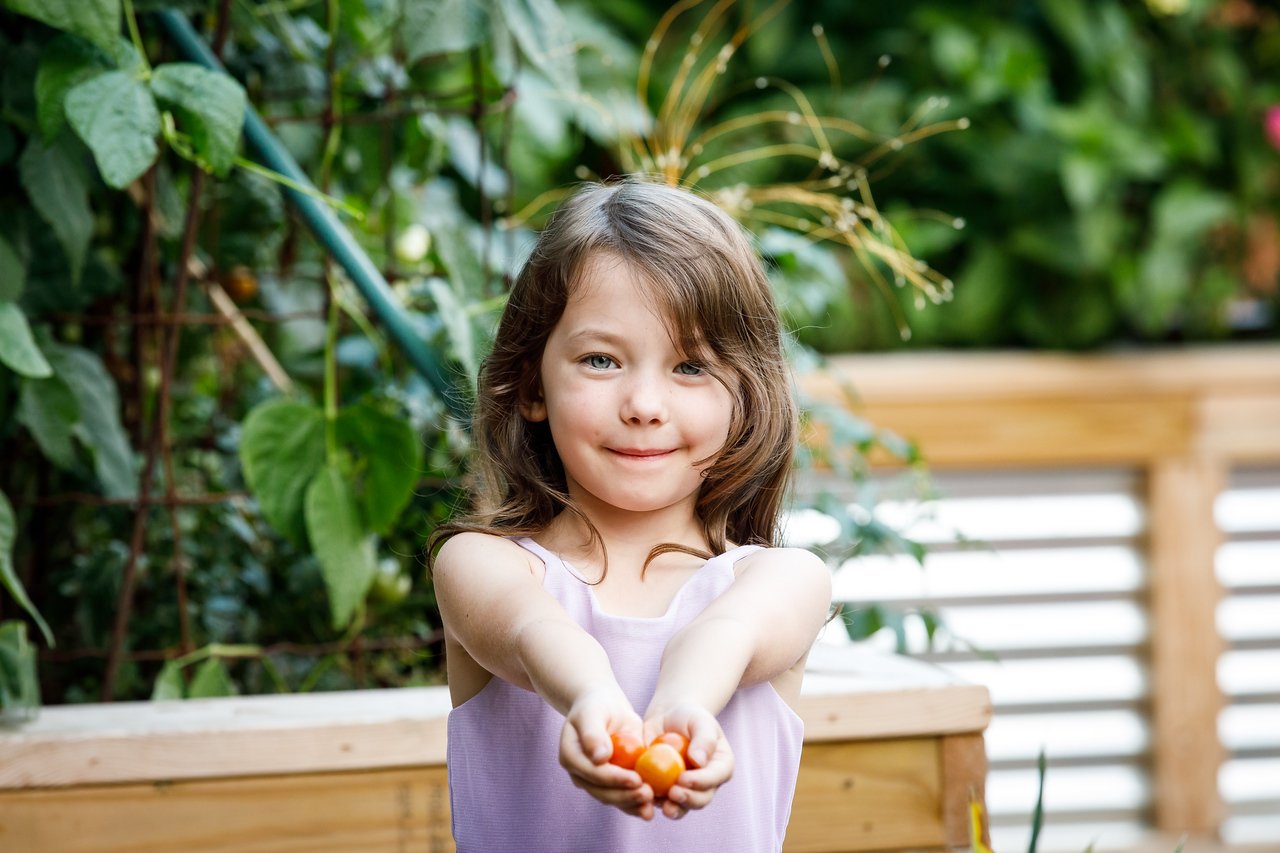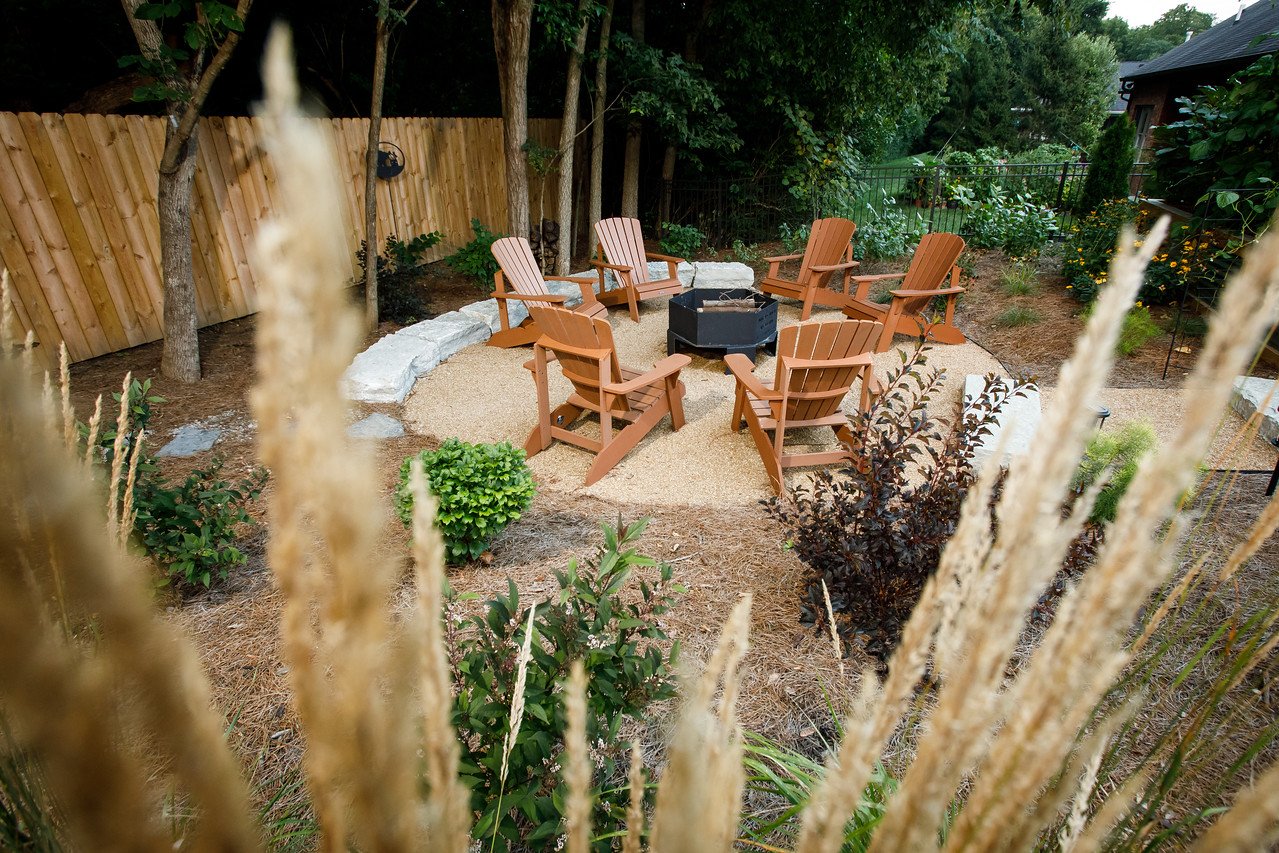Combining Edible Gardens and Native Landscaping (Kings Mills)
AFTER: A new paver patio serves as a hub for raised bed vegetable gardening and outdoor living.
The Challenge
A large patch of green lawn was costing money and time to maintain, but the clients weren’t getting much use out of it.
BEFORE: A large swath of lawn wasn’t being used by the family, even as it cost money and effort to maintain.
They hoped to convert this unused part of their yard into an outdoor living space that offered beauty and function and inspired friends and family to gather together outside.
The Transformation
We got to work converting the unused patch of lawn into the family’s primary outdoor gathering space.
We started by creating a paver patio featuring raised vegetable garden beds and native plants along the periphery.
AFTER: Native plants line the periphery of the new paver patio, which provides a hub for raised bed vegetable gardening and outdoor dining.
AFTER: The raised vegetable garden beds were built with extra height for ease of harvesting. These beds were built by our carpentry partner Lively Homestead Design.
Five feet. That’s about the distance the vegetables from this garden travel to the outdoor dinner table when freshly picked.
AFTER: Raised vegetable beds provide food and learning opportunities for the whole family.
Beyond the paver patio, we installed a crushed stone patio where the whole family can hang out for fireside chats.
AFTER: A crushed stone patio, ample seating, and a fire pit invite the family to gather for moment of connection.
Surrounding both patios are native perennial plants and shrubs that provide food and habitat for pollinators, sustaining this productive hub.
AFTER: Pollinators avail themselves of the native plants that are seamlessly integrated into the landscape.









